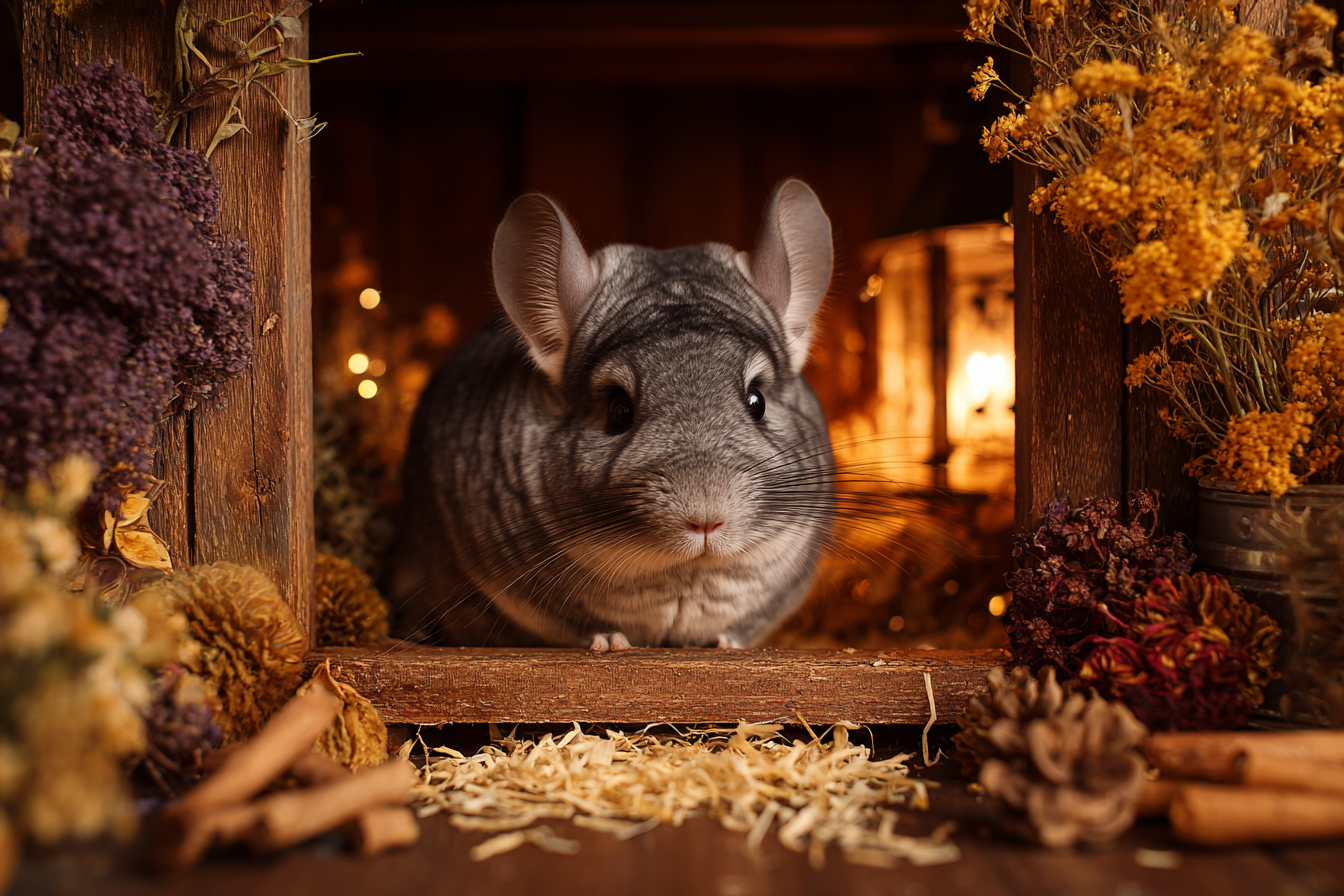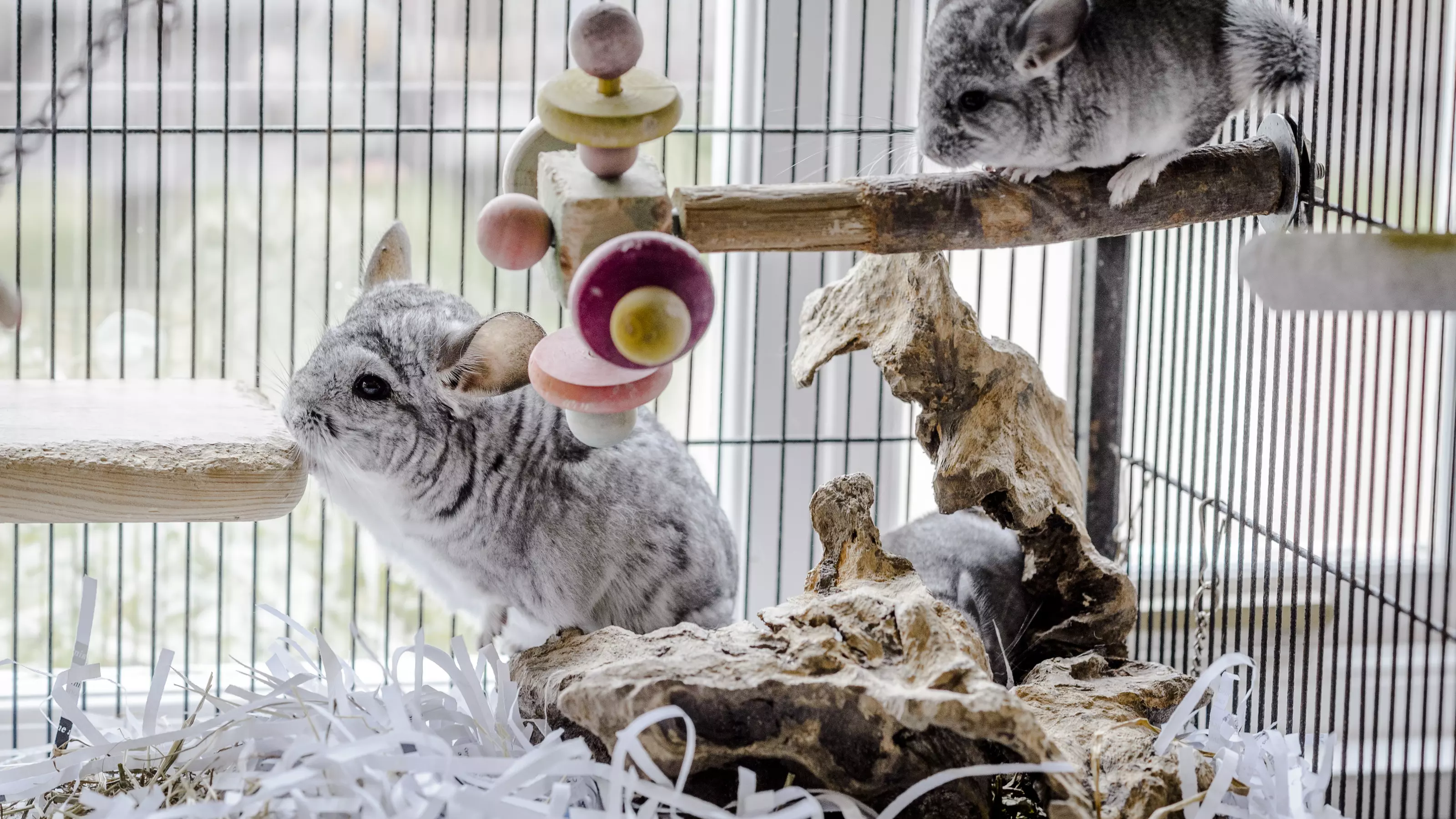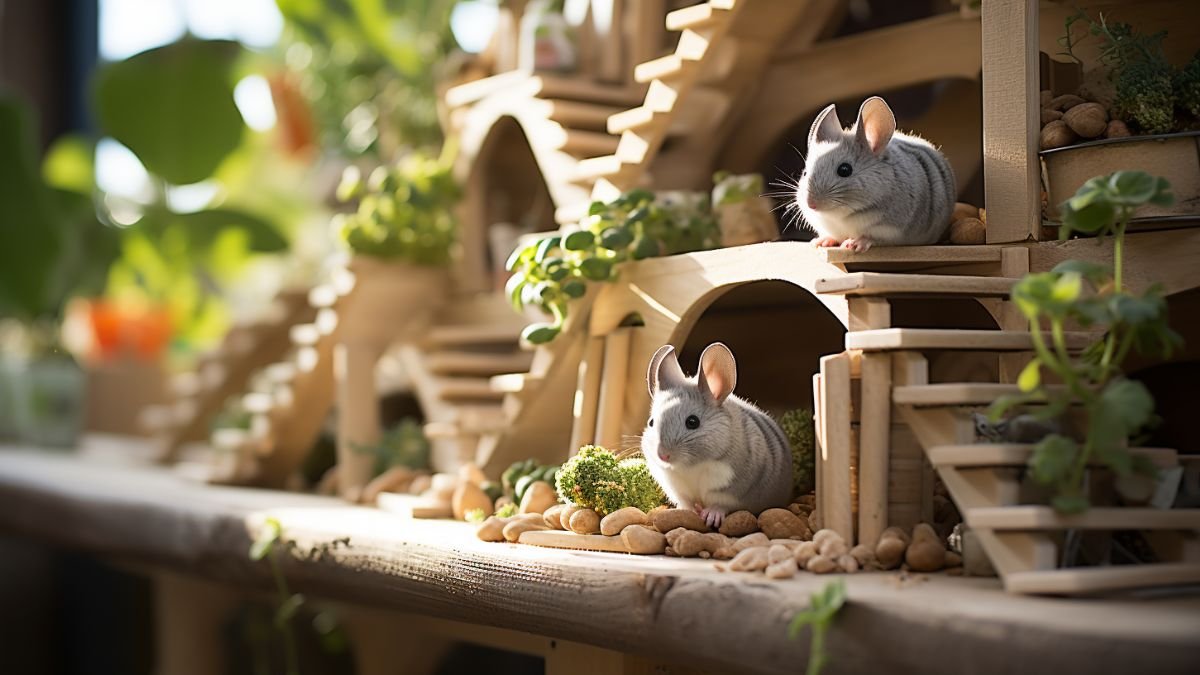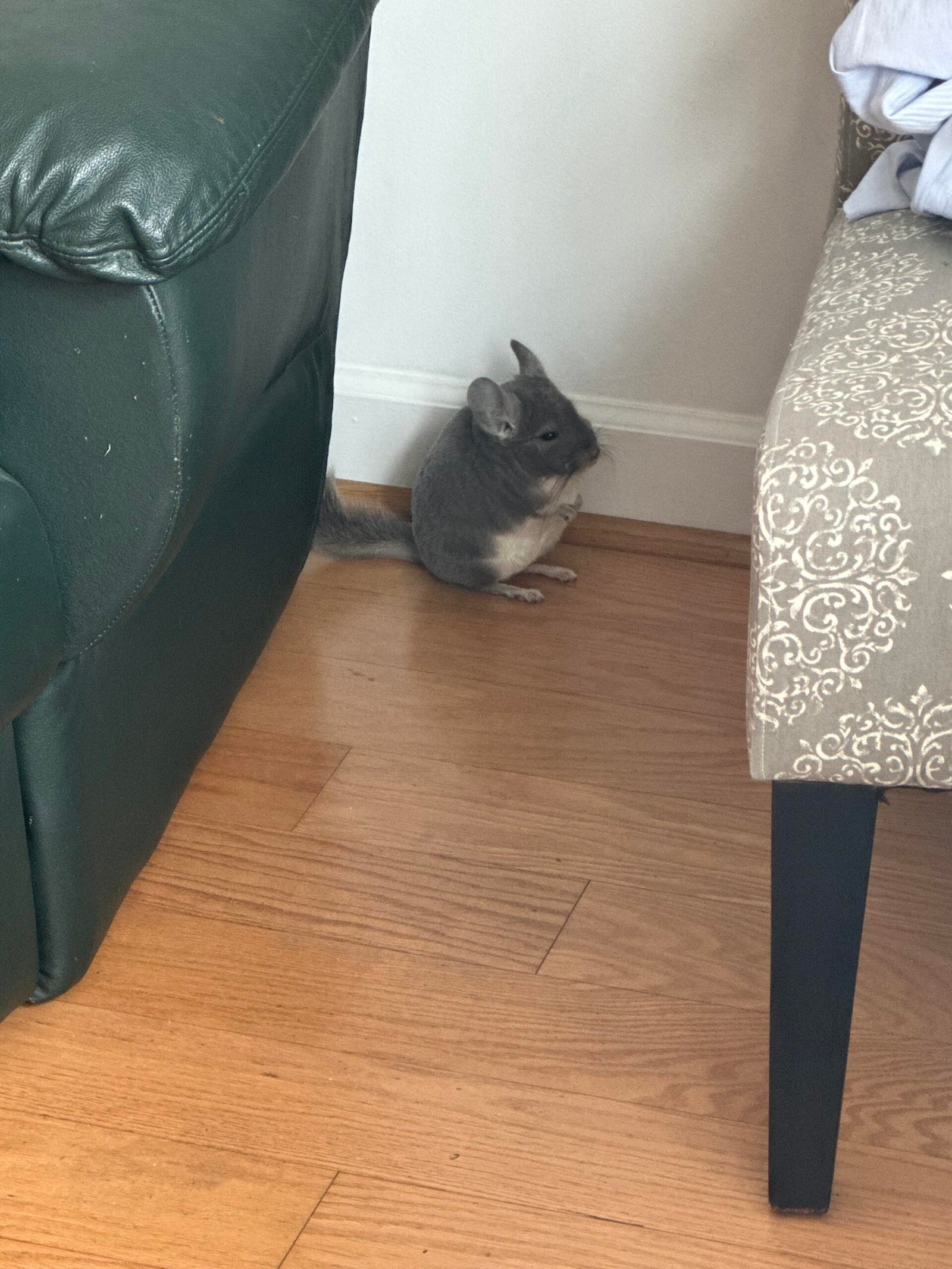
Taking your chinchilla to the vet can be stressful for both you and your furry friend. You want to make sure your pet stays calm and comfortable during the visit.
But how can you ease their anxiety and make the experience smoother? You’ll discover simple and effective tips to reduce stress for your chinchilla at the vet. By following these easy steps, you’ll help your pet feel safer and more relaxed, turning vet visits into a much better experience for both of you.
Keep reading to find out how!

Credit: www.bluecross.org.uk
Preparing Your Chinchilla
Preparing your chinchilla for a vet visit helps reduce stress. It makes the experience easier for both you and your pet. Start getting your chinchilla used to the process early. Small steps build trust and calm behavior. Focus on two key areas: the carrier and handling.
Familiarizing With The Carrier
Introduce the carrier as a safe space, not a trap. Place the carrier in your chinchilla’s living area for a few days. Leave the door open so your pet can explore freely. Add soft bedding and a favorite toy inside. This creates a cozy, inviting place. Offer treats near and inside the carrier. This helps your chinchilla connect the carrier with positive experiences. Practice short trips in the carrier around your home. Gradually increase the time spent inside the carrier. This reduces fear when it’s time for the vet visit.
Gentle Handling Practices
Handle your chinchilla with calm, gentle movements. Avoid sudden grabs or loud noises. Speak softly to reassure your pet. Support your chinchilla’s body fully when picking it up. Use both hands: one under the chest and one under the hind legs. Keep your chinchilla close to your body for security. Practice daily handling sessions to build comfort. Stop if your pet shows signs of stress. Gentle handling helps your chinchilla feel safe during travel and exams.

Credit: www.amazon.com
Choosing The Right Vet
Choosing the right vet is key to making vet visits calm and safe for your chinchilla. A good vet knows how to handle small, delicate pets with care. This helps reduce stress for your chinchilla and gives you peace of mind.
Finding Exotic Pet Specialists
Not all vets have experience with chinchillas. Exotic pet specialists understand their unique needs. They know how to check and treat chinchillas gently. Find vets who list exotic pets as their specialty. This ensures better care for your furry friend.
Reading Reviews And Recommendations
Check online reviews from other chinchilla owners. Honest feedback shows how vets treat exotic pets. Ask friends or local pet groups for advice. Personal recommendations often lead to vets who truly care. This helps you choose a vet your chinchilla will trust.
Scheduling Smartly
Scheduling vet visits for chinchillas carefully can reduce their stress a lot. Choosing the right time helps keep your pet calm and comfortable. Planning ahead also gives you a smoother experience at the clinic. Pay attention to when your chinchilla is most relaxed during the day. This way, the visit feels less scary for them.
Picking Low-stress Times
Chinchillas are more active in the morning and evening. Choose a time when your chinchilla is awake but calm. Avoid times when they usually sleep or eat. A calm chinchilla will handle travel and vet checks better. Early morning appointments work well before the clinic gets busy.
Avoiding Peak Hours
Vet clinics are often crowded in the late morning and afternoon. Long waits and noisy rooms can frighten chinchillas. Try to book visits during quiet hours. This reduces noise and chaos around your pet. Less waiting means less anxiety for both you and your chinchilla.
Minimizing Travel Stress
Travel can be hard for chinchillas. They get scared by new sounds and movements. Reducing their stress during trips makes vet visits easier. Small changes help them feel safe and calm.
Focus on how you carry them and the environment around them. Both affect their comfort a lot. Calm chinchillas are less stressed and more relaxed at the vet.
Using Comfortable Carriers
Choose a carrier that fits your chinchilla well. It should be sturdy and safe. Soft bedding inside adds comfort and warmth. Avoid carriers that shake or rattle during travel. Make sure the carrier has good air flow. Familiar smells inside help your pet feel secure.
Maintaining Calm Environment
Keep the car quiet and smooth. Avoid loud music and sudden stops. Talk softly to your chinchilla to soothe them. Cover the carrier with a light cloth to block bright light. Keep the temperature steady, not too hot or cold. A calm setting lowers your pet’s anxiety.
Creating A Calm Waiting Area
Creating a calm waiting area helps reduce chinchilla stress during vet visits. Chinchillas feel safer in quiet, familiar surroundings. A calm space can make the wait easier for them and for you. Small changes can improve your chinchilla’s comfort while waiting.
Bringing Familiar Items
Bring your chinchilla’s favorite blanket or toy to the vet. Familiar smells help your pet feel safe. These items remind them of home. Place the item in their carrier or on your lap. This reduces fear and nervousness during the wait.
Keeping Noise To A Minimum
Keep the waiting area quiet to avoid startling your chinchilla. Loud sounds can scare them easily. Speak softly and avoid sudden noises. Ask others nearby to lower their voices. A calm sound environment helps your pet stay relaxed.
Communicating With Your Vet
Good communication with your vet makes visits easier for your chinchilla. Your vet needs to understand your pet well to reduce stress during check-ups. Clear information helps the vet provide better care and comfort.
Sharing Your Chinchilla’s Behavior
Tell the vet about your chinchilla’s daily habits and moods. Mention any signs of stress or unusual behavior. This helps the vet predict how your pet might react in the clinic. Sharing details about eating, sleeping, and activity levels is useful. It allows the vet to tailor the visit to your chinchilla’s needs.
Asking About Stress-reducing Techniques
Ask the vet about ways to keep your chinchilla calm during visits. They may suggest gentle handling or quiet rooms. Some vets use soft towels or dim lights to reduce fear. Learn about treats or toys that calm your pet. Knowing these methods prepares you and your chinchilla for a smoother visit.
Post-visit Care
After a vet visit, chinchillas need special care to help them feel safe and calm. Post-visit care reduces stress and helps them recover faster. Gentle handling and a peaceful environment make a big difference. Watch your chinchilla closely to catch any signs of stress early.
Providing A Quiet Recovery Space
Set up a quiet, comfortable area for your chinchilla. Use a soft bedding that feels safe and warm. Keep the space away from loud noises and bright lights. This helps your pet relax and rest well. Avoid moving them too much right after the visit. A calm spot helps their body heal and mind settle.
Monitoring For Stress Signs
Check your chinchilla often for signs of stress or illness. Look for changes in eating or drinking habits. Watch for unusual behaviors like hiding, shaking, or aggression. Breathing problems or lack of energy also signal stress. Early detection helps you act quickly. Contact your vet if you notice anything worrying.

Credit: stkittsvet.co.uk
Using Positive Reinforcement
Using positive reinforcement helps make vet visits calm and less scary for chinchillas. It teaches them to associate vet time with good things. This method uses treats, praise, and gentle care to reduce fear. It also builds a strong bond between you and your chinchilla. Start training early and keep sessions short and kind.
Treats And Praise
Give your chinchilla small, favorite treats during vet visits. This reward helps them feel happy and safe. Use soft words and gentle strokes as praise. Say simple phrases like “good job” or “well done.” Your chinchilla will learn to expect kindness at the vet. Avoid forcing treats, let your pet take them calmly.
Building Trust Over Time
Trust grows with steady, gentle care over many days. Handle your chinchilla often, but softly and slowly. Let them explore carriers and vet supplies at home first. Visit the vet clinic for short, calm visits without exams. This way, your chinchilla sees the place as safe. Patience and kindness create a relaxed, trusting pet.
Recognizing Stress Signals
Chinchillas are small and sensitive pets. They show stress in quiet ways. Knowing these signs helps you keep them calm during vet visits. Stress can affect their health and behavior. Watching closely helps you act fast and protect your chinchilla.
Common Stress Behaviors
Chinchillas may hide or freeze when stressed. They might breathe fast or shake slightly. Teeth grinding is a clear sign of worry. Some chinchillas stop eating or grooming themselves. Watch for unusual movements or noises. These behaviors show your pet feels scared or uncomfortable.
When To Seek Professional Help
Stress can lead to serious health problems. If your chinchilla shows constant stress signs, visit the vet quickly. Sudden changes in behavior or appetite need attention. A vet can check for illness or pain. Early help makes treatment easier and recovery faster.
Frequently Asked Questions
How Can I Prepare My Chinchilla For A Vet Visit?
Start by handling your chinchilla gently daily to build trust and reduce fear of touch.
What Should I Bring To The Vet For My Chinchilla?
Bring your chinchilla’s health records, favorite treats, and a secure travel carrier.
How Do I Choose A Vet Experienced With Chinchillas?
Look for vets with exotic pet experience or ask local chinchilla owners for recommendations.
How Can I Reduce My Chinchilla’s Travel Stress?
Use a quiet, padded carrier and cover it with a light cloth to keep your chin calm.
What Signs Show My Chinchilla Is Stressed During A Vet Visit?
Watch for rapid breathing, shaking, or refusal to eat as signs of stress.
Can I Use Treats To Calm My Chinchilla At The Vet?
Yes, offering favorite treats helps comfort and distract your chinchilla during the visit.
How Often Should I Take My Chinchilla To The Vet?
Schedule a vet visit at least once a year or if you notice health changes.
What Are Common Health Checks For Chinchillas At The Vet?
Vets check teeth, fur, weight, and listen to breathing to ensure good health.
Conclusion
Vet visits can be stressful for chinchillas, but you can help. Prepare their carrier and keep calm during the trip. Speak softly and offer treats to comfort them. Regular vet visits keep your pet healthy and happy. Small steps make a big difference in their experience.
Caring for your chinchilla means easing their fears. A calm pet means a smoother check-up for everyone. Keep these tips in mind to make visits easier. Your chinchilla will thank you with better health and trust.







